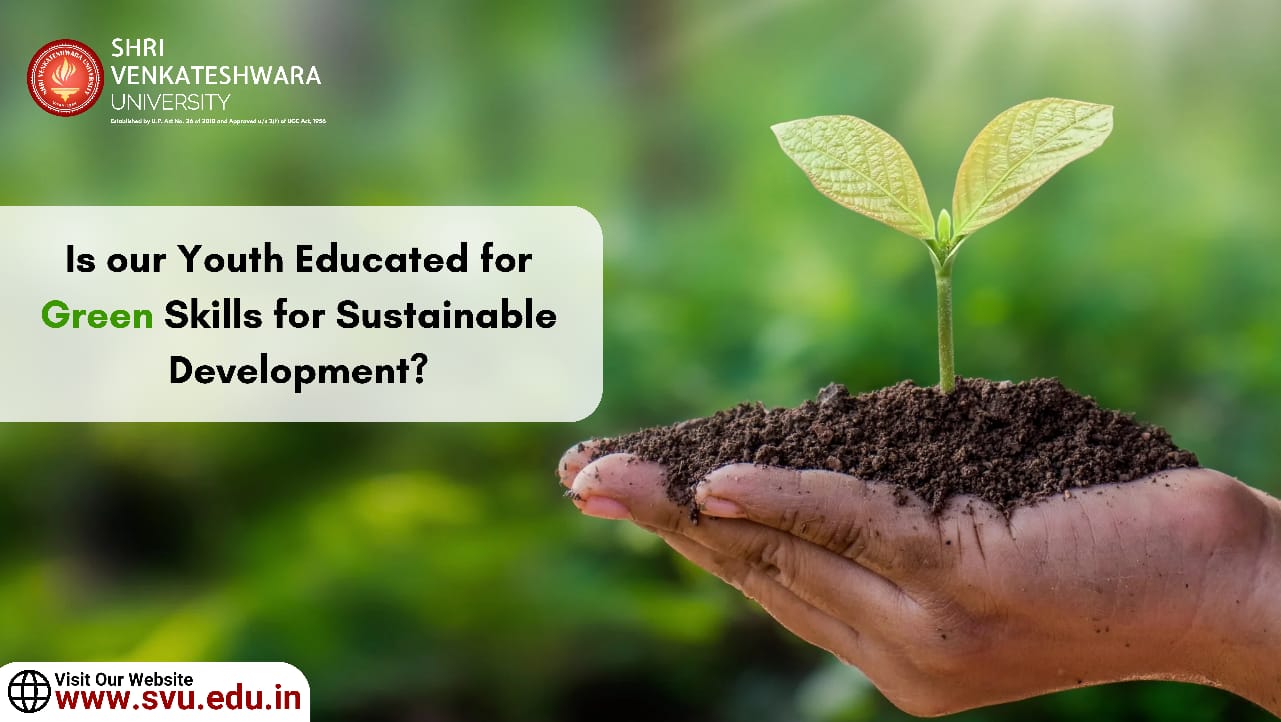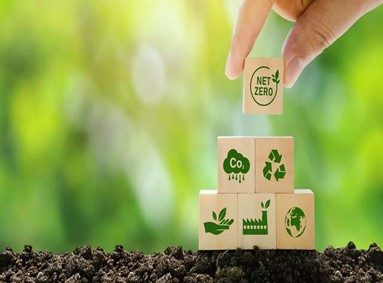
Presently, 1.2 billion individuals between the ages of 15 and 24 make up 16% of the world's population. By 2030, when the Sustainable Development Goals (SDGs) of the 2030 Agenda are expected to be implemented, there will be roughly 1.3 billion young people worldwide, a 7% increase in population. Young people can contribute positively to development if they are given the tools and chances they require to succeed. Thus, initiatives are required to turn young people into productive workers who can improve everyone's quality of life in the world. "Knowledge, abilities, values and attitudes needed to live in, develop and support a sustainable and resource-efficient society" is what is meant to be understood by "green skills.” In the agricultural industry, green talents are cantered on organic agriculture, permaculture, agroforestry, sustainable farming methods, effective resource management, etc. Professionals with these abilities support responsible land use, biodiversity conservation, and sustainable food production. Green skills also improve the resilience and long-term profitability of communities and enterprises by helping them to adapt to the challenges posed by environmental risks such as climate change. Green talents include jobs that limit waste and pollution, conserve energy, safeguard ecosystems and biodiversity, and restore or preserve environmental quality for a sustainable future.
These abilities are essential for waste management, sustainable agriculture, renewable energy sources like wind and solar power, environmental protec tion, and other fields that promote sustainable development. The promotion of circular economic models—which minimize waste output, maximize resource efficiency, and lessen the burden on natural ecosystems—also benefits greatly from the use of green talents. Owing to their multidisciplinary nature, the substance of green talents is occasionally communicated through other related phrases like "skills for the future" and "skills for green jobs," if not entirely through them. Green jobs are in greater demand as countries move toward sustainable practices. Green jobs are in greater demand as countries move toward sustainable practices. Gaining green skills can promote economic growth in eco-friendly industries and enhance employment prospects. Green skills in agriculture are mostly focused on methods of conserving water, managing soil fertility without the use of chemicals, using bio-inputs to control weeds and pests, etc. To attain a sustainable future, it is essential to comprehend how prepared our young are to adopt these eco-friendly skills.
tion, and other fields that promote sustainable development. The promotion of circular economic models—which minimize waste output, maximize resource efficiency, and lessen the burden on natural ecosystems—also benefits greatly from the use of green talents. Owing to their multidisciplinary nature, the substance of green talents is occasionally communicated through other related phrases like "skills for the future" and "skills for green jobs," if not entirely through them. Green jobs are in greater demand as countries move toward sustainable practices. Green jobs are in greater demand as countries move toward sustainable practices. Gaining green skills can promote economic growth in eco-friendly industries and enhance employment prospects. Green skills in agriculture are mostly focused on methods of conserving water, managing soil fertility without the use of chemicals, using bio-inputs to control weeds and pests, etc. To attain a sustainable future, it is essential to comprehend how prepared our young are to adopt these eco-friendly skills.